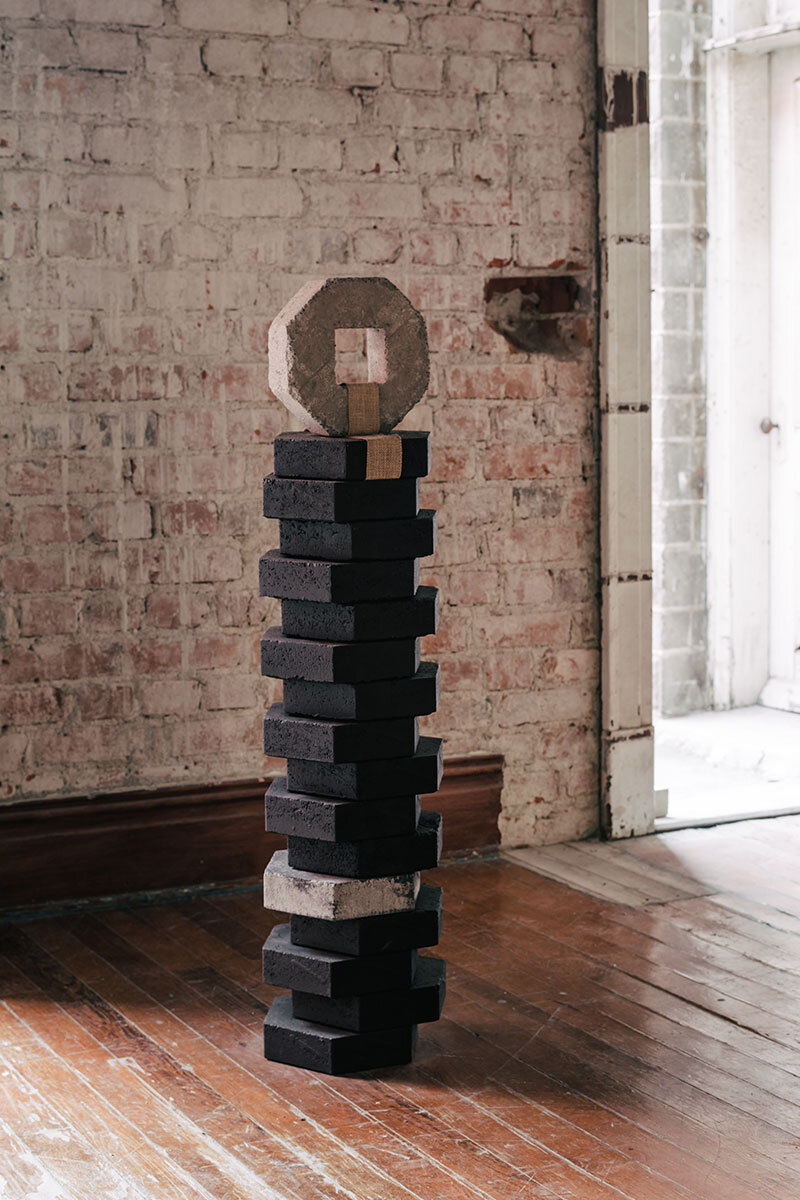Zoccolo - A collaboration with Umberto Bellardi-Ricci
zoccolo - a collaboration with Umberto Bellardi-Ricci
An etymological reference to the Italian root word for plinth, and a reflection on the pedestal as both artwork and frame.
Five unique columns arranged in a square composition display they are the product of raw materials: refined by the symbiosis of human and machine. Considering the application of ‘readymade’ elements to the tradition of stacked sculpture, each column contains a precarious balance of form and materiality that combines organic and industrial surfaces.
Tenuous links are forged between pre-existing materials: industrial elements originally designed to tesselate in sinuous repetition are re-appropriated to create totems that challenge gravity and oppose standardized notions of construction.
Each individual column employs a different typology of concrete building materials: from trapezoidal pier blocks to flat cinder blocks and scalloped garden pavers in shades of grey, sand, and ochre red. Horizontal and vertical relationships create alternating tiers (at times suggesting a cantilevered effect), as rigid and supple materials are arranged in new compositions that integrate slabs of oak, carved Douglas fir, latex, rubber, and stainless steel.
Through these material associations, abstract references are embedded in each piece – from the codes of origami and Japanese wood joinery to the zigzag of Brancusi’s Endless Column– their formality questioned by the more spontaneous gestures of folding and drape. The result is transformative, elevating the banal in a ceremonial meditation on perceptions of impermanence and subjectivity.
''This anemic modern plinth is paradoxically both self-effacing and surreptitiously domineering. As a tool-object, its modus operandi attempts to go unnoticed, as though it were just some dumb amenity, hiding in plain sight. When the plinth thrusts something aloft, it not only indicates where to look, but also dictates how we see. Its purpose is to impart matter with value, but through a spurious sacrificial means.
But any plinth’s presence of being is relative to its symbiosis with the thing it holds aloft. Per Aristotle: X’s matter is that which of X is made. Clay is matter to brick, but brick is matter to a house. The making of matter is a matter of where and when and why as much as what for.''
— Daniel Ayat
Photos by Adrianna Glaviano.
























